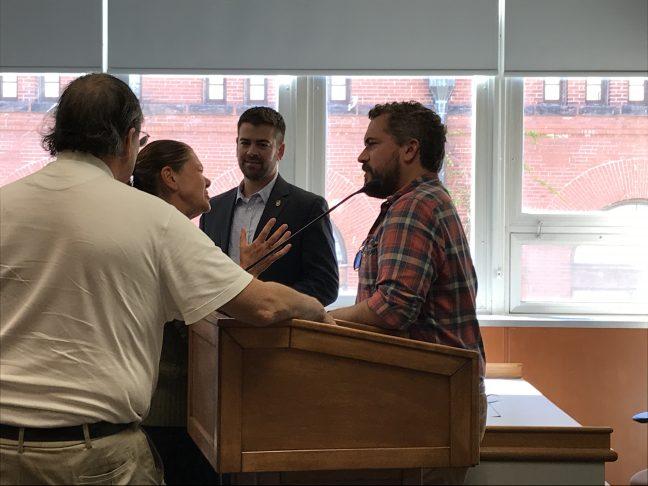University of Wisconsin’s La Follete School of Public Affairs hosted Cody Keenan, a former speechwriter for former President Barack Obama, at the Pyle Center Friday.
Keenan spoke about his career as a speechwriter and what it was like working with Obama.
Keenan said his journey began when he moved to Washington D.C. after college. Even though it was a difficult place to break into, Keenan said he eventually found himself working for former-U.S. Sen. Ted Kennedy as an intern.
The experience he gained as an intern was one of the “best political learning experiences,” Keenan said, because he was reading letters from real people with real problems.
After a couple years interning for Kennedy and going back to school to get his master’s in public policy, Keenan got involved with the Obama campaign in 2007. Since then, he has worked for 10 years as a speechwriter for him.
Keenan said the best speeches come from collaborations and that research is the foundation of any good speech.
He added that working with Obama was easy because of the way the two collaborate on speeches.
“It doesn’t matter how good a speechwriter is if the one delivering it can’t articulate well,” Keenan said.
When asked about the use of Twitter in politics, Keenan said he hated social media while in the White House because of how instant it was.
He also said Twitter has made it hard to stay completely anonymous, and that speechwriters should be “neither seen nor heard.”
In addition to talking about his career, Keenan touched on the struggle him and Obama have had on deciding when to be vocal and when to stay quiet regarding the decisions of President Donald Trump and his administration.
“In a perfect world, Obama would say nothing for the next four to eight years, but this is different,” Keenan said. “In his final speech, [Obama] signaled he’ll say something if he has to.”
And when Trump announced his travel ban and rescinding of Deferred Action for Childhood Arrivals, Obama spoke up, which is exactly what he said he would do, Keenan said.
UW political scientists discuss problematic effects of gerrymandering
Keenan said there are a lot of reasons why politics is more polarized than ever, but he enjoys speaking on college campuses because there is a hopeful atmosphere.
But he did say colleges should not ban speakers on campus just because the views are different or controversial.
“College should be a challenging place for ideas,” Keenan said. “College should scare you intellectually and make you feel small so you push back.”













